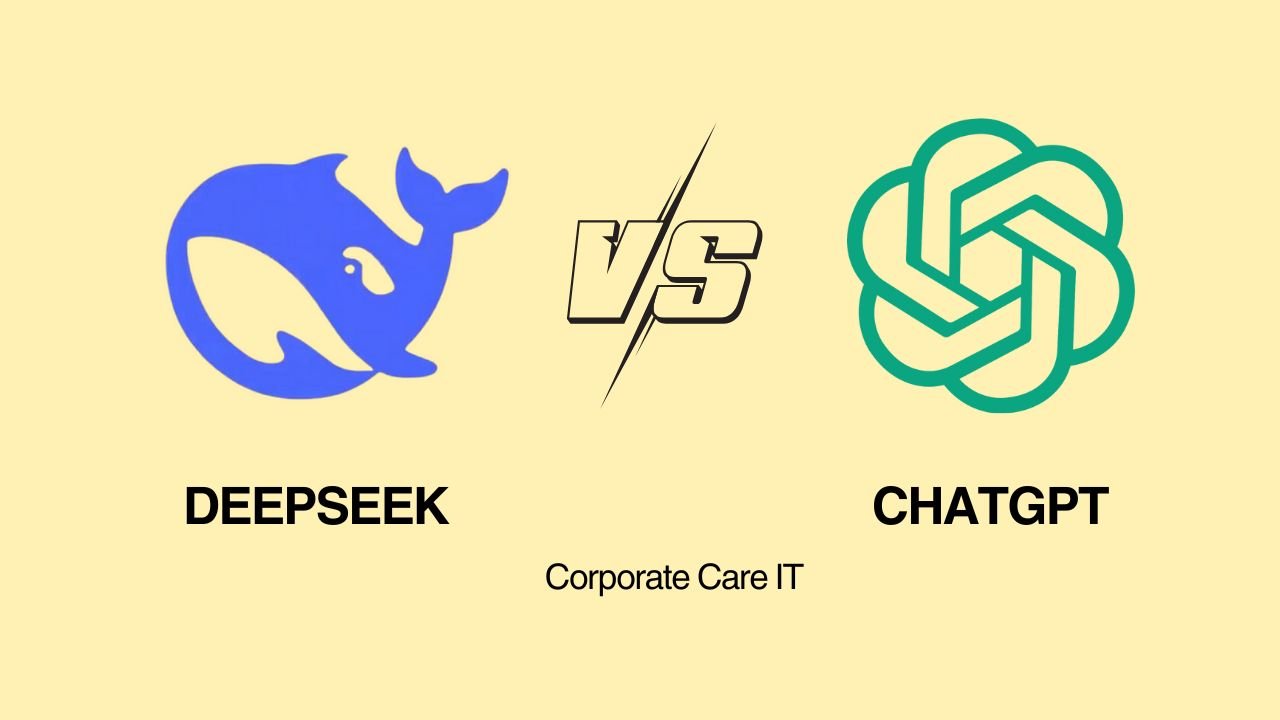Table of Contents
ToggleWhat is DeepSeek?
DeepSeek is an advanced Artificial Intelligence (AI) tool designed to offer specialized assistance across a wide range of tasks. Unlike general-purpose AI chatbots, DeepSeek focuses on delivering highly accurate and tailored responses, making it an ideal choice for users who require precision and depth in specific domains. Whether you’re a marketer conducting in-depth research, a developer seeking optimized coding solutions, or a writer in need of creative inspiration, DeepSeek is built to cater to your unique requirements.
One of DeepSeek’s standout features is its seamless integration with other platforms and workflows through open-source APIs, boosting productivity and efficiency. For instance, it provides advanced data analysis tools for researchers and specialized coding assistance for developers. This focus on delivering targeted, high-quality outputs sets it apart from generalized AI tools like OpenAI’s ChatGPT.
Developed at a fraction of the cost of other large language models (LLMs)—approximately $6 million—DeepSeek is not only innovative but also highly cost-effective. It’s free to use, making it accessible to a broad audience. Its affordability and accessibility have contributed to its rapid rise in popularity, earning it the title of the most downloaded app on the App Store as of January 27th, 2025. At its core, DeepSeek employs a self-reinforced learning model that operates without human supervision, significantly reducing development costs compared to models like ChatGPT. This unique approach allows DeepSeek to deliver high-quality AI assistance while remaining affordable and scalable.
What Is ChatGPT?
ChatGPT is one of the most popular and versatile AI chatbots globally. It excels in conversational capabilities and has a broad range of applications, from drafting emails and essays to generating code and brainstorming ideas. Its adaptability makes it a preferred AI tool among writers, students, professionals, and hobbyists.
Since its launch in November 2022, ChatGPT has gained immense popularity due to its user-friendly interface and accessibility. With a free-tier option, it remains a go-to AI chatbot for casual users. Its ability to engage in natural, human-like conversations enhances its appeal as a reliable AI assistant.
OpenAI continues to innovate with its latest models, ChatGPT 4.0 and ChatGPT 4.0 Pro, released in late 2024. These models offer improved accuracy, faster responses, and better contextual understanding. Features like priority access during peak times and the ability to handle complex queries make ChatGPT a robust AI chatbot for diverse applications.
DeepSeek and ChatGPT: Architectural Comparison
A comparative analysis of DeepSeek-R1 and ChatGPT 4.0 highlights their core architectural differences, shedding light on their respective strengths, limitations, and ideal use cases.
DeepSeek R1:
- Mixture-of-Experts (MoE) Architecture: Uses 671 billion parameters but activates only 37 billion per query, optimizing computational efficiency.
- Reinforcement Learning (RL) Post-Training: Enhances problem-solving capabilities through self-reinforced learning without excessive reliance on supervised datasets.
- Cost-Effective Development: Trained in just 55 days on 2,048 Nvidia H800 GPUs at a cost of $5.5 million, significantly lower than ChatGPT’s estimated $100 million+ training expenses.
ChatGPT 4.0:
- Dense Model Architecture: Built on a monolithic 1.8 trillion-parameter framework, optimized for creative and language-based tasks.
- Advanced Chain-of-Thought Processing: Excels in multi-step reasoning, particularly in STEM fields like coding and mathematics.
- Proprietary Training Framework: Requires extensive computational resources, making it one of the most expensive AI models to develop.
The Key Differences Between DeepSeek and ChatGPT
At first glance, DeepSeek and ChatGPT serve a similar purpose—both are AI assistants designed to answer questions, generate content, and assist with various tasks. However, their differences lie in how they handle information, their accessibility, and their approach to certain topics.
- Depth of Answers: Both AI models are capable of answering a wide range of questions, but their approaches differ. DeepSeek tends to provide more detailed, in-depth responses compared to ChatGPT. If you ask DeepSeek a question, it may go beyond a simple answer to provide background information, reasoning, and even suggestions for the next steps. This makes it highly useful for users who need detailed insights. On the other hand, ChatGPT offers concise and straightforward responses, making it ideal for users who need quick, to-the-point information. However, for complex topics, you might need to prompt ChatGPT multiple times to achieve the desired depth.
- User Interface and Experience: ChatGPTexcels in user interface design. Its clean, simple, and intuitive interface ensures that even beginners can start using it immediately without any technical knowledge. DeepSeek’s interface, while functional, lacks the same level of polish and may feel more complicated for first-time users. However, its flexibility is a significant advantage for users exploring intricate topics.
- Censorship and Content Filters: Both models are designed to prevent harmful or illegal content, but there’s a noticeable difference in their approach to censorship. DeepSeekis slightly more lenient with controversial topics, offering nuanced responses that allow for deeper discussions. In contrast, ChatGPT takes a more cautious approach, quickly shutting down conversations deemed inappropriate or controversial. While this ensures a safe user experience, it may feel limiting for users seeking in-depth discussions on sensitive topics.
- Innovation and Updates: ChatGPT has undergone years of development and refinement, making it a well-established tool for both individuals and businesses. OpenAI consistently releases updates, such as GPT-4, expanding its capabilities. DeepSeek, being a newer player, is still evolving. While it shows promise with its niche focus on depth and flexibility, it lacks the widespread recognition and application that ChatGPT
Pros and Cons of DeepSeek and ChatGPT
Understanding the strengths and limitations of each AI model is crucial for making an informed choice. Below, we’ve highlighted the key advantages and drawbacks of both DeepSeek and ChatGPT based on user feedback and performance data.
| Feature | DeepSeek | ChatGPT |
| Pros | Cost-effective and open-source | Strong contextual understanding |
| Ideal for coding and technical queries | Reliable for writing and research | |
| Faster response times for structured data | Superior multimodal capabilities (text, images, voice) | |
| Strong mathematical computation performance | Intuitive, user-friendly interface | |
| Cons | May exhibit biases in politically sensitive topics | Subscription required for premium access |
| Requires verification for complex responses | Higher computational costs | |
| The interface is less intuitive for casual users | Slower for technical computations |
The ideal choice between DeepSeek and ChatGPT depends on user priorities—whether technical efficiency and cost-effectiveness matter more or an intuitive, well-established AI chatbot is preferred.
How Does Deepseek’s Cost-Effectiveness Compare to ChatGPT’s Pricing?
DeepSeek’s affordability surpasses ChatGPT, making it a budget-friendly AI tool for individuals and businesses alike.
- Pricing Model: DeepSeek offers a subscription starting at $0.50 per month, with API access costing approximately $0.14 per million input tokens and $0.28 per million output tokens. This model makes it a viable option for businesses integrating AI solutions at scale.
- Cost Per Token: DeepSeek operates at a cost 27 times lower per token than OpenAI’s models, making it ideal for extensive AI-powered applications like data processing and automated workflows.
Choosing the Right AI Model
When deciding between DeepSeek V3 and ChatGPT 4.0, it’s essential to align your choice with your specific needs:
- If you require precision, multilingual capabilities, and scalability, DeepSeek V3 is the clear choice.
- For businesses prioritizing creativity, adaptability, and ease of use, ChatGPT 4.0 is a better fit.
Both DeepSeek AI and OpenAI’s ChatGPT are powerful AI tools, but their unique features and pricing structures make them suitable for different use cases. Whether you’re exploring artificial intelligence news or seeking the best AI chatbot for your needs, this comparison provides valuable insights to help you make an informed decision.


